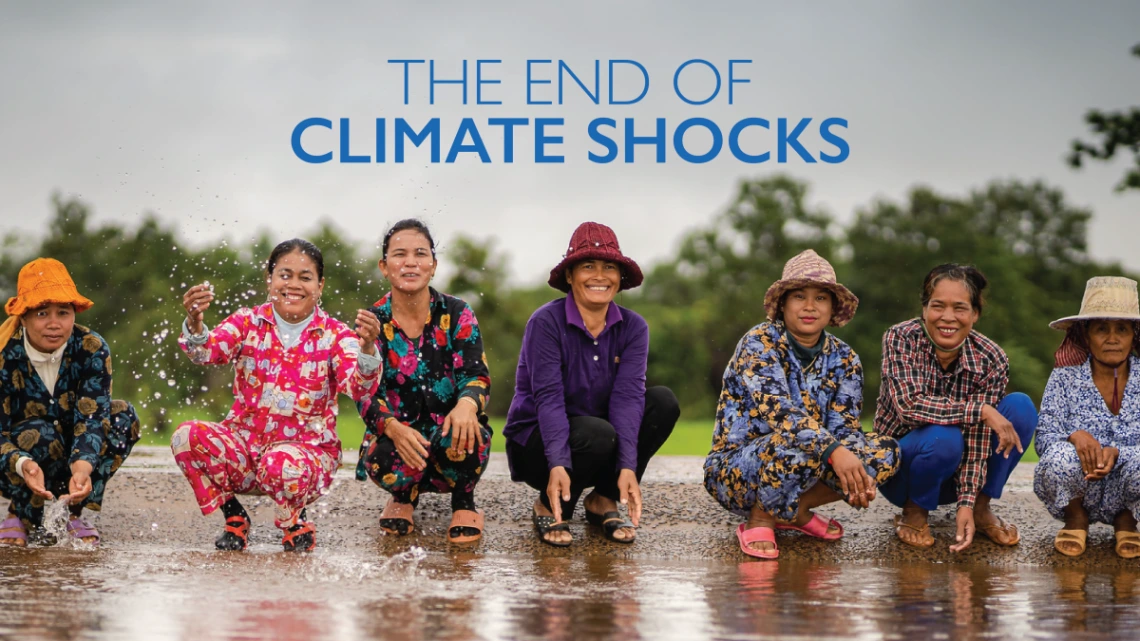Administrator Samantha Power Calls for Increased Focus and Funding to Prepare Communities Around the World for Increasingly Deadly and Dangerous Climate Shocks

Administrator Samantha Power delivers remarks at the Johns Hopkins University Bloomberg Center. The speech “The End of Climate Shocks” highlights the increasing frequency of climate related disasters and discusses what the world can do to build climate resilience and help impacted communities better prepare
Recent years have been marked by near-constant record-breaking heat waves, floods, fires, and storms. These so-called “climate shocks” are so common they can hardly be called “shocks” any longer. Yet despite the regularity of these disasters, communities around the world are wholly unprepared to adapt to them, causing major disruptions to systems and destruction of infrastructure, crops, and livelihoods. And less than five percent of private climate finance goes directly toward adaptation.
Today, Administrator Samantha Power set out a new approach for how to spur progress on building resilience and announced new initiatives to accelerate support, and to expand programs that contribute to the President’s Emergency Plan for Adaptation and Resilience (PREPARE), aimed at preparing communities and building their resilience to these perpetual and deadly climate “shocks.” Administrator Power called for global action to spur innovation on affordable solutions by applying the lessons learned from the transition to renewable energy and to dramatically scale investments in the Global South.
USAID’s commitments today will also leverage additional private sector investment towards climate adaptation, a vitally needed step.
In addition, Administrator Power announced that she will host a first-of-its-kind global summit on extreme heat. This summit will convene leaders from around the world to discuss solutions and strategies to protect communities and workers from extreme heat.
Administrator Power announced $22.4 million to expand existing programs including:
- $11.3 million towards SERVIR, a USAID-NASA partnership that uses satellite and geospatial technologies to provide governments, institutions, and communities data on changing weather patterns and impending climate shocks. This data helps communities prepare for droughts, floods, heatwaves, and more. SERVIR has strengthened climate resilience, agriculture and food security, water security, ecosystems, carbon management, and efforts to improve air quality in countries across Asia, Africa, and Latin America.
- $6.1 million to increase public sector access to private investments in climate resilience across the Eastern and Southern Caribbean. This initiative will increase public sector capacity to develop and implement financial instruments for climate risk management and investment, improve private sector investment in resilience approaches and technologies, and establish and strengthen partnerships for resilience-building actions.
- $5 million in an initial investment to the University of Arizona Climate Adaptation Research Program to expand the capacity of the local climate adaptation researchers in developing countries focused on humanitarian assistance and disaster risk reduction. Funding will support youth and young professionals who are researching and addressing local climate issues in Africa, the Pacific, Latin America and the Caribbean in partnership with Stellenbosch University-Partners for Enhancing Resilience for People Exposed to Risks University Network, Consejo Superior Universitario Centroamericano and Auckland University of Technology.
- Under PREPARE, agencies across the U.S. government are offering a range of financing options, feasibility studies, and trade facilitation to encourage companies around the world to build adaptation products and services.
To learn more about USAID’s work to address the climate crisis, you can find more information on our website: usaid.gov/climate.
Article originally published at USAID.gov.
